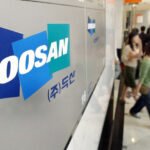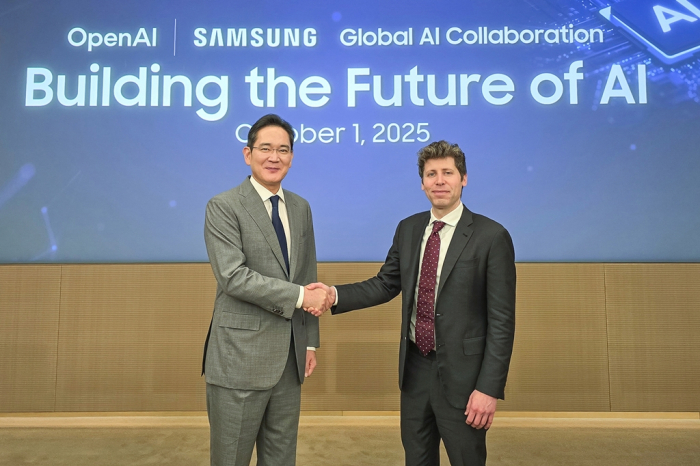
Samsung Electronics Co. and SK Hynix Inc., the world’s two largest memory chipmakers, have agreed to strengthen collaboration with OpenAI Inc., positioning themselves at the center of a $500 billion project to build next-generation artificial intelligence infrastructure by the end of the decade.
The two South Korean chipmakers signed letters of intent on Wednesday with OpenAI Chief Executive Sam Altman to supply high-bandwidth memory (HBM) semiconductors for the US start-up’s so-called Stargate initiative, a program to construct a network of hyperscale AI data centers around the world by 2029.
Under the agreements, Samsung and SK will deliver a large portion of the HBMs used in OpenAI’s custom AI accelerators.
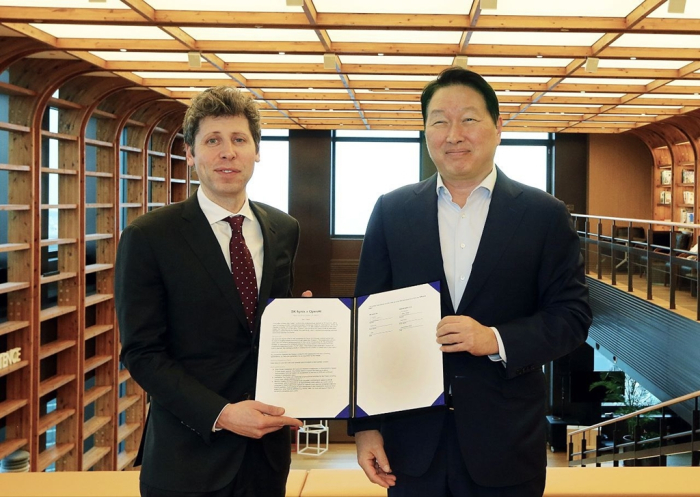
The San Francisco-based company, the creator of generative AI ChatGPT, has requested volumes equivalent to as many as 900,000 wafers a month, more than twice the current global production capacity.
Analysts estimate the commitment amounts to more than 100 trillion won ($72 billion) of incremental demand for the Korean chipmakers over the next four years.
HBM CHIPS, KEY COMPONENTS FOR AI MODELS
HBM chips, which are stacked to deliver high bandwidth and energy efficiency, have emerged as the key components in training and deploying advanced AI models.
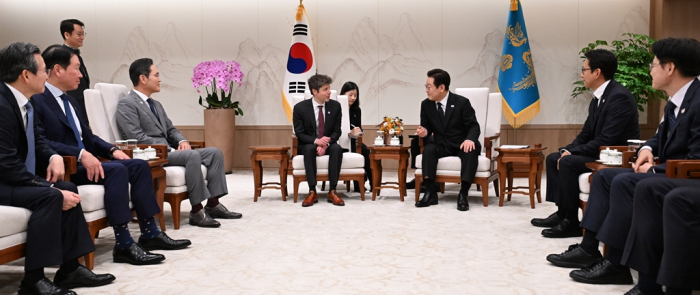
According to market research firm Counterpoint Research, Samsung and SK together command nearly 80% of the global HBM market, giving them strategic leverage as hyperscalers and AI developers race to secure supply.
“This partnership will allow us to scale the frontier of AI infrastructure,” Altman said after separate meetings in Seoul with Samsung Chairman Jay Y. Lee and SK Group Chairman Chey Tae-won.
The talks were attended by Korean President Lee Jae Myung, who pledged full government support, calling the agreements “a global partnership that will set the standard for the AI era.”
OpenAI’s Stargate project, announced in January, is a venture with SoftBank and Oracle to spend $500 billion in building new AI data centers for OpenAI in the US and elsewhere. The move was seen as aimed at curbing China’s rise in the AI space.
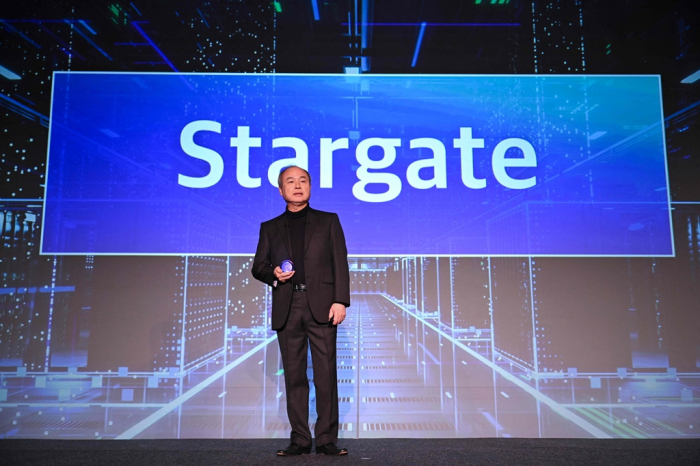
SAMSUNG, SK EYE EXPANDED PARTNERSHIPS WITH OPENAI
Samsung signaled that its role will extend beyond memory chips.
Its IT services arm, Samsung SDS Co., will provide expertise in data center design and operations, while Samsung C&T Corp. and Samsung Heavy Industries Co. plan to explore floating offshore data centers.
SK Telecom Co., meanwhile, will collaborate with OpenAI on a domestic data center initiative branded “Stargate Korea.”
The push underscores how AI demand is reshaping the semiconductor landscape.
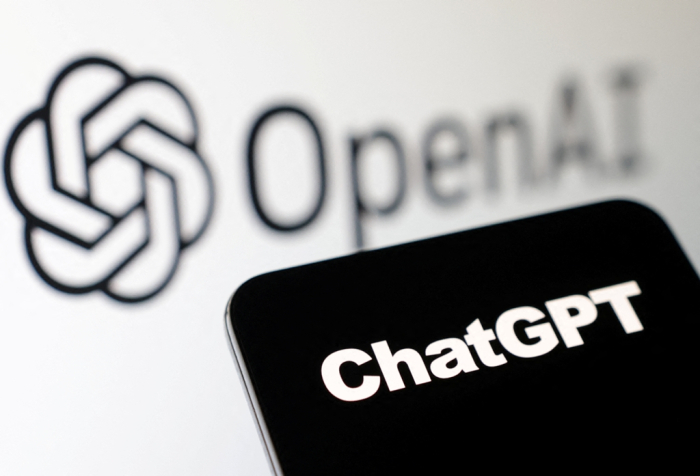
Chip market research firm IDC estimates the global memory market to exceed $220 billion in 2026 and reach $235 billion by 2030.
Both Samsung and SK are developing complementary products for AI data centers, including GDDR7 graphics DRAM, LPDDR5X low-power DRAM and 128TB solid-state drives.
For OpenAI, which has recently accelerated efforts to design its own AI accelerators, the supply agreements secure a critical pipeline of memory chips as it seeks to reduce reliance on Nvidia and other incumbents, analysts said.
In May, OpenAI established a legal entity in Korea, which has the largest number of paying ChatGPT subscribers outside the US.
By Jeong-Soo Hwang and Chae-Yeon Kim
hjs@hankyung.com
In-Soo Nam edited this article.


